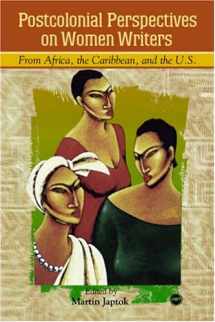
Postcolonial Perspective on Women Writers from Africa, the Caribbean, and the U.S.
Book details
Summary
Description
Postcolonial literary criticism has specialized in intercultural comparisons of literatures produced both under and after colonialism, focusing most often on groupings determined by the colonizing power. Simultaneously, race and culture-based studies have merged the fields of African American and African studies together. This volume combines the two studies and shows how postcolonial perspectives have been applied to African and African American literature. All the essays in ths volume concentrate on women writers, exploring how the (post) colonial condition is reflected in women’s literature. Thus three analytical fields—postcolonialism, gender, and race—overlap in these essays, which cover a broad spectrum of authors and genres. Harriet Jacobs, Zora Neale Hurston, Nella Larsen, Gayl Jones, and Gloria Naylor are discussed in the African American sections. The subjects of the Caribbean sections are Jamaica Kincaid, Marlene Nourbese Philip, Paul Marshal, Edwidge Danticat, and Grace Nichols. Mariama Bâ, Ama Ata Aidoo, Buchi Emecheta, and Tsitsi Dangarembga are discussed in the African section. Finally, a comparative essay deals with Hilda Kuper and Lorraine Hansberry. The essays in this volume are united by their focus on oppositional strategies and on attempts to create alternative value systems. Most of these strategies involve a kind of healing, which includes the processes of re-writing history, re-imagining culture, re-envisioning the roles of women and men, and reconstructing identity. By examining closely such coping strategies, these essays illustrate both the diversity and ultimate coherence of the postcolonial project.


We would LOVE it if you could help us and other readers by reviewing the book
Book review



